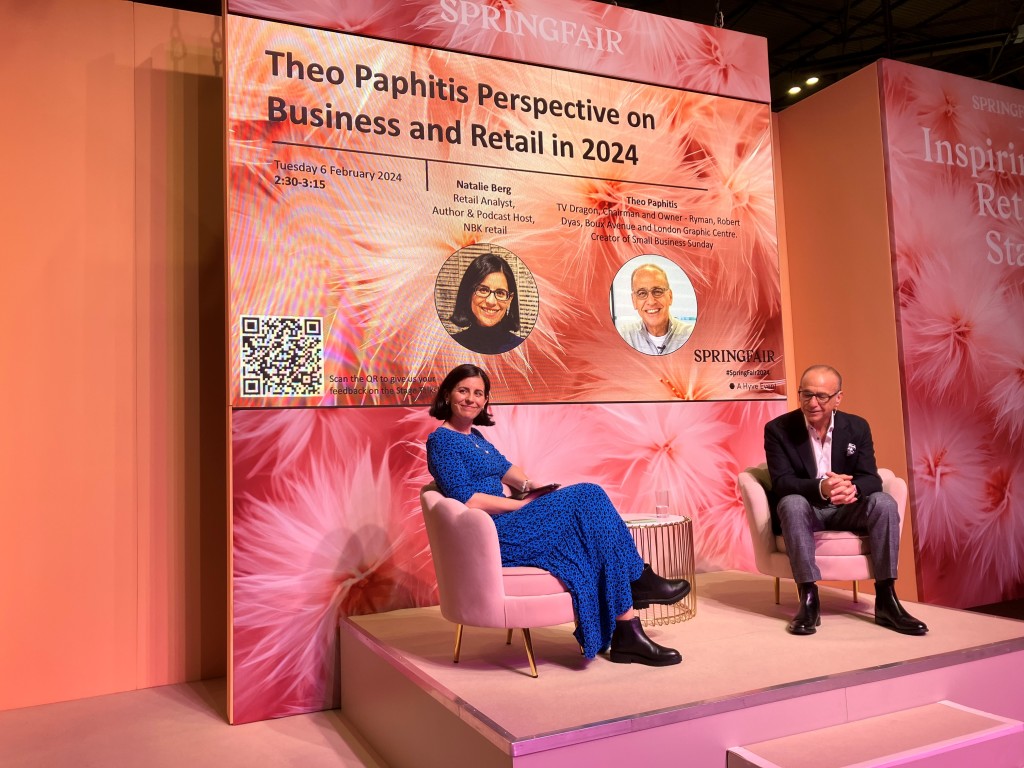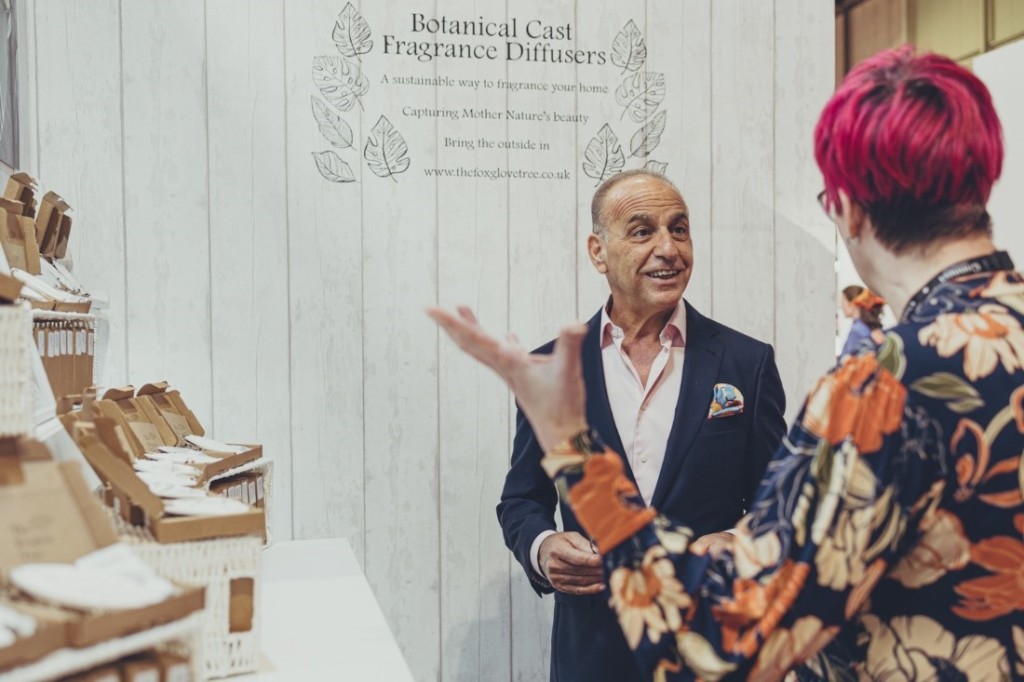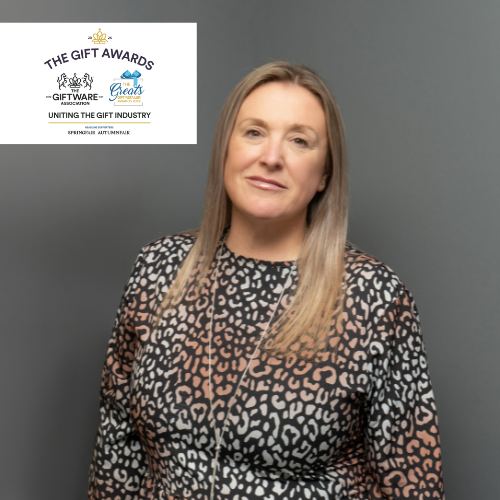It was standing room only when retail entrepreneur and former TV ‘Dragon’ Theo Paphitis took the Inspiring Retail Stage at Spring Fair on 6 February, where he was interviewed by Natalie Berg, a retail analyst, author and host of podcast NEK Retail, about opportunities and challenges for retail businesses.
Asked by Natalie how he is seeing customer expectations evolve, he stated that the world had changed for retail and is continuing to change. “Customers are far more promiscuous than they ever were,” he pointed out. “It’s like a one night stand. People move from one brand to another all the time and can shop from anywhere at any time, so retailers have to ensure that customers have to have a reason to come back to them. It’s a lot, lot tougher, and I actually think it will get a lot tougher yet,” he predicted.
Highlighting the importance of bringing online and offline retail together, Theo cited Next as a successful, evolving business that has prospered by adapting to the consumer, changing its business model to marry offline and online, enabling the two to work together. “Failed retailers don’t adapt,” he stated, referring to Debenhams as one of the 6,000 stores that have closed. “Technology has moved so sharply – there are ready made products to help – meaning that retailers can now mix their physical and digital offering far cheaper than ever before.”

Explaining how his company, Ryman, is mixing technology with the company’s physical offering – 190 stores – he highlighted the launch of Ryman’s mobile appwhich has been created to disrupt the online greetings industry. “I’m a big greetings card giver and thought, wouldn’t it be great to mix an online proposition with our stores. It is both competitive and compelling.”
The app allows customers to personalise and pick up greeting cards from their nearest Ryman store in just 60 minutes, with Theo explaining: “We’re entering a massively competitive market for personalised cards that was born out of the digital era, and we are leveraging it through our stores. As customer behaviour changes your stores have to have a reason to exist, for customers to shop with you today, tomorrow and the day after that.”
His advice for small business start-ups was: “Do your homework. Over 50% of businesses fail in the first two years because companies haven’t done their homework. You have to know your numbers. Business is simple as long as you do the simple things, and it’s nice not to fail the first time round. Everyone gets things wrong and you learn from that. Just don’t bet the farm!”

He also advised that although it wasn’t possible to do anything about the current business rate system – something he passionately believes must change – retailers should aim to negotiate better rents with their landlords, going for three to five year deals when their leases come up for renewal. “There have been huge decreases in rent in shopping centres and on the high street,” he emphasised, adding that retailers needed to recognise the power of social media and to use it to “engage not shout.”
Asked how different retail will be by 2034, Theo predicted: “Exponentially it will be very different. In ten years time, we will all be using things and products in our everyday lives that we haven’t been invented yet. AI, for example, has thrown a bomb into the retail pot, and after the explosion we are now seeing huge growth, because AI is good if you use it properly and understand what it can do for you. So my advice is, if you get an advantage take it, because if you don’t, someone else will. You have to be able to mix technology with your business and also keep an open mind.

Having received free stands as part of the show’s partnership with Theo’s #Small Business Sunday initiative and exhibiting at Spring Fair for the first time, 12 new winners showcased their designs in the #SBS Village, with Theo visiting the winners, listening to their experiences and seeing their products in the flesh for the first time.
Top: Retail entrepreneur Theo Paphitis was a huge draw at Spring Fair earlier this week, where he is shown in conversation with facilitator Natalie Berg.






















